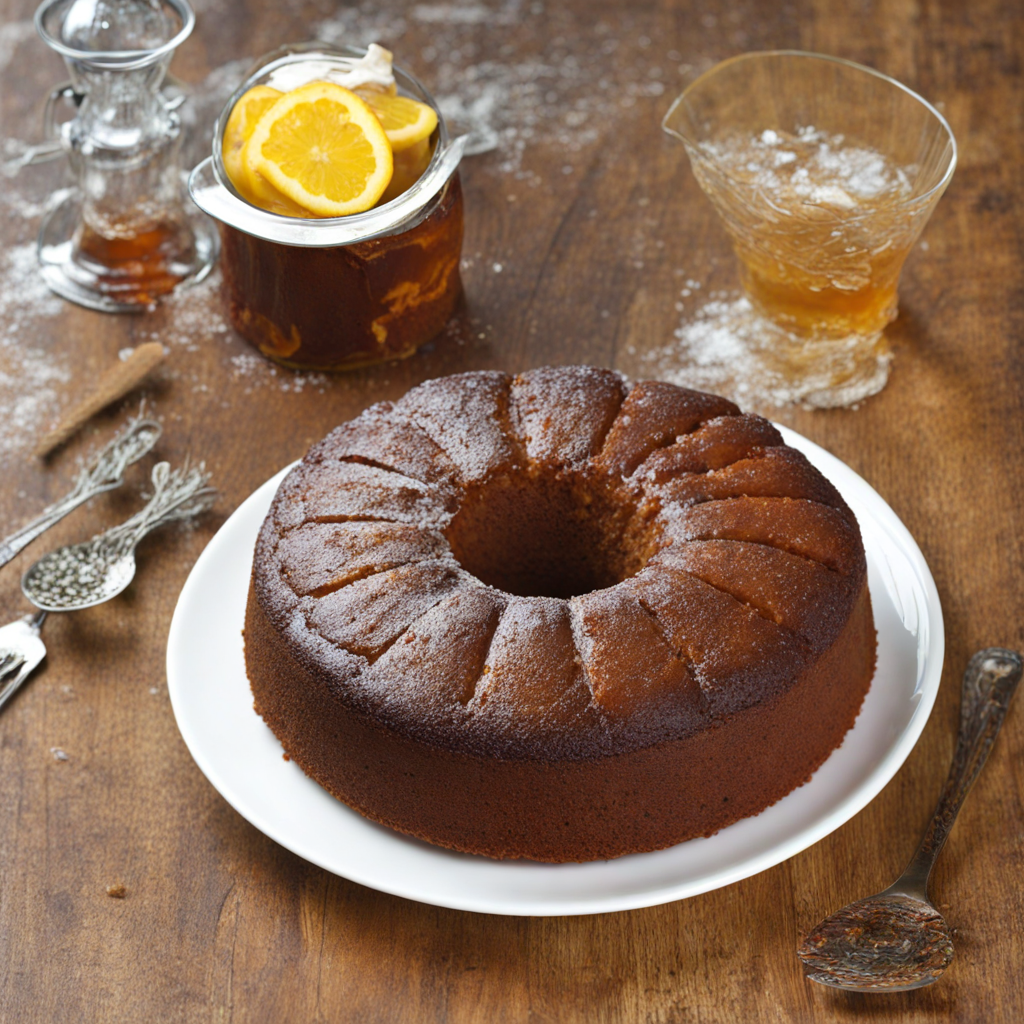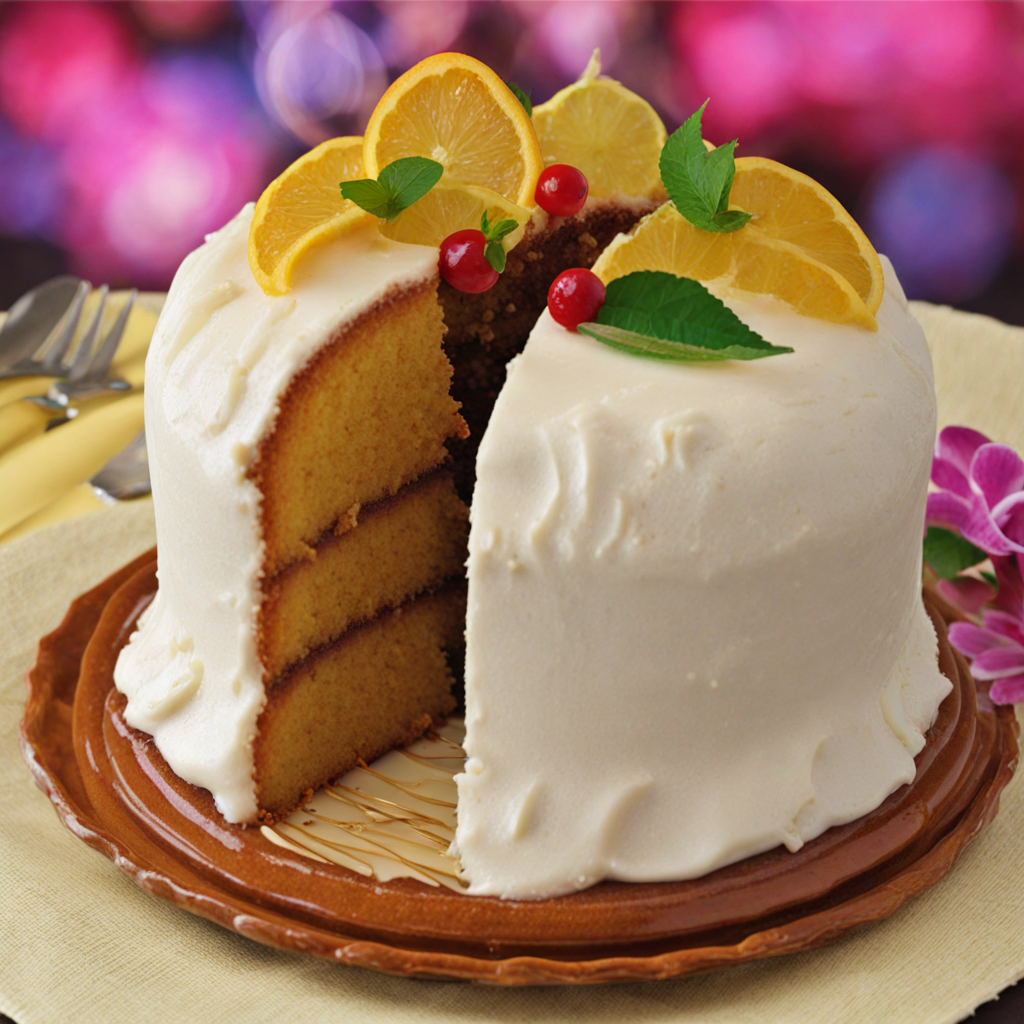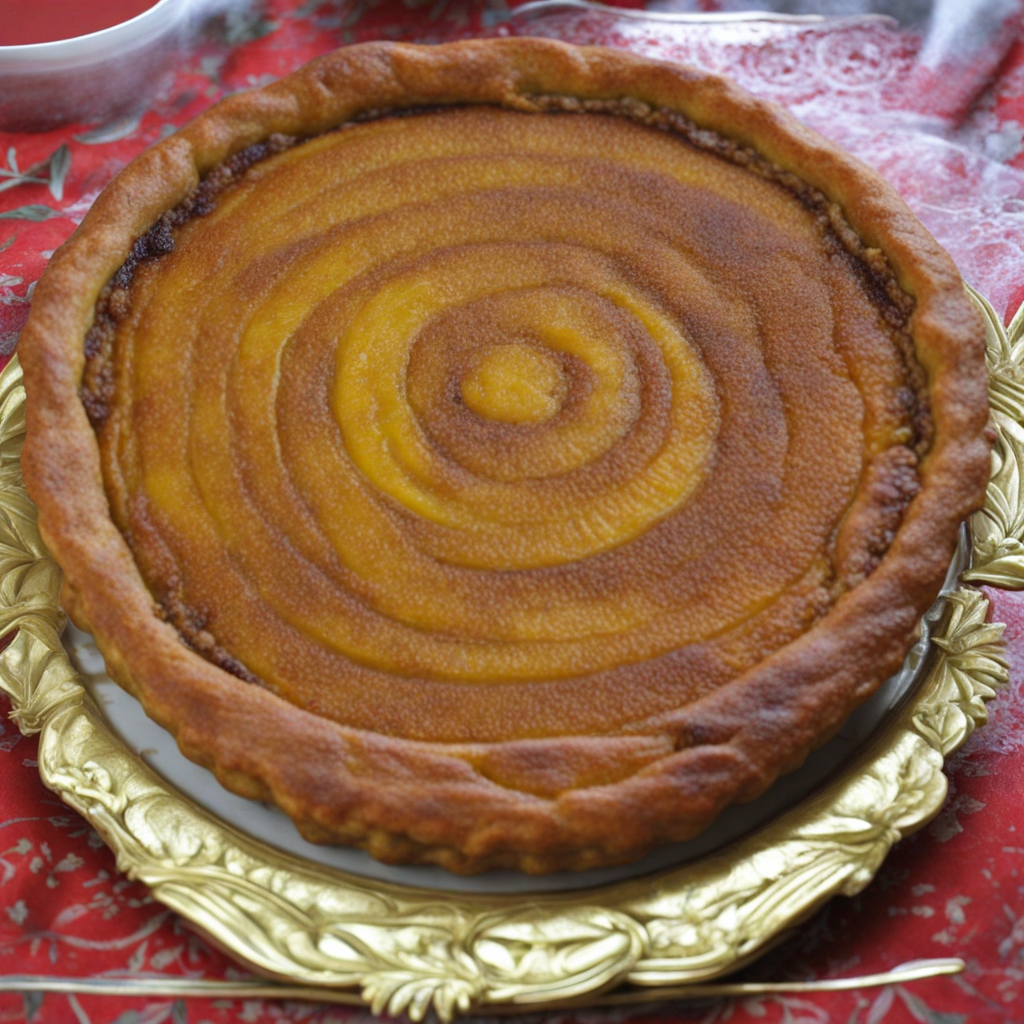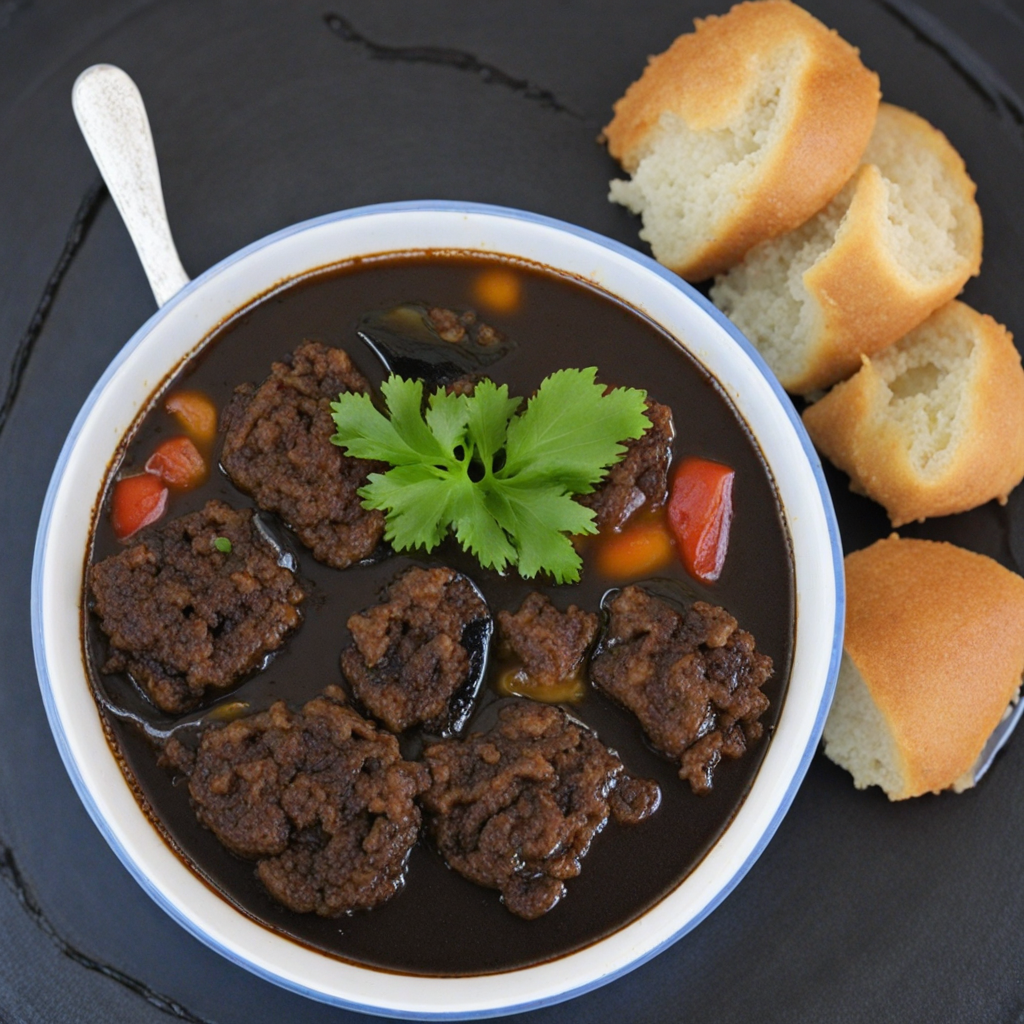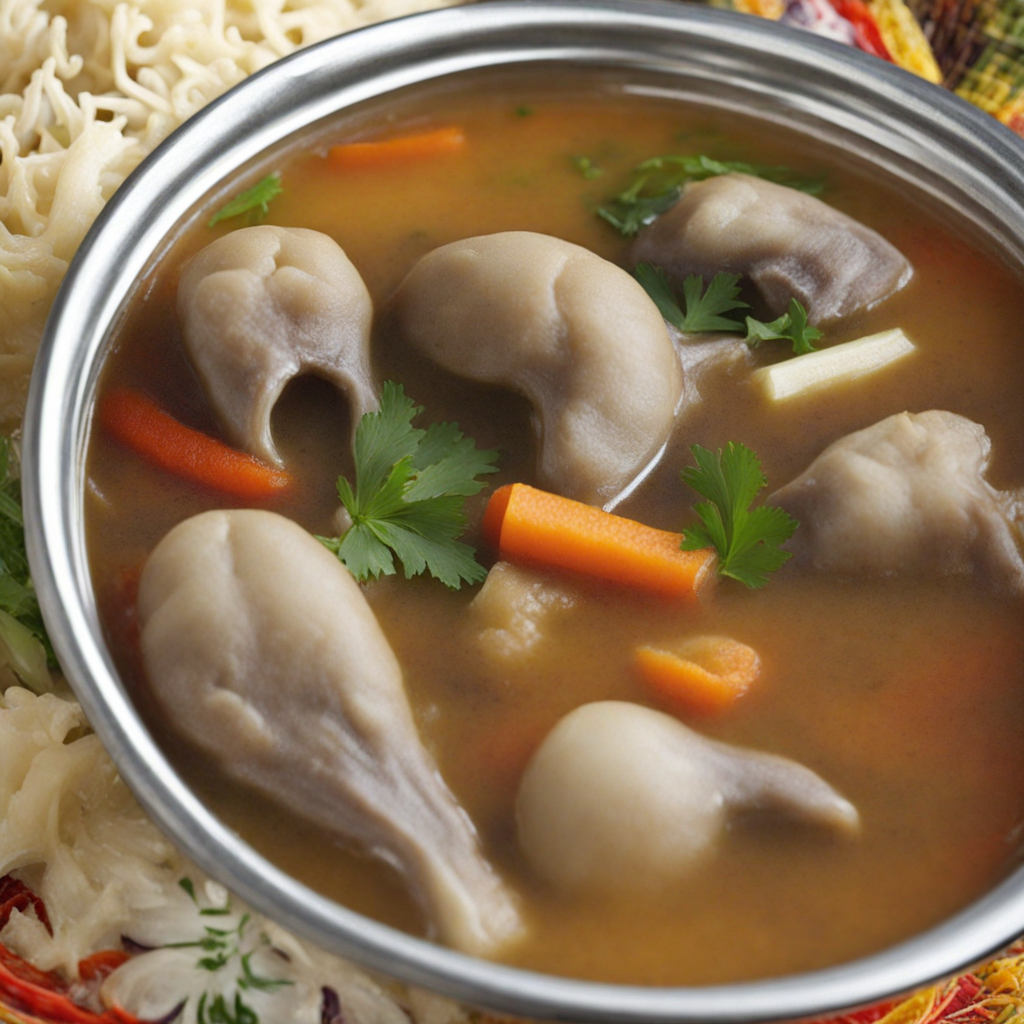Belizean Rum Cake
Belizean Rum Cake is a decadent dessert that beautifully captures the essence of Belize's rich culinary heritage. This moist, dense cake is infused with a generous amount of rum, giving it a warm, complex flavor profile that is both sweet and slightly spiced. The cake is typically made using a combination of flour, sugar, eggs, and butter, but what sets it apart is the addition of tropical fruits like raisins, cherries, and sometimes even nuts. These ingredients not only enhance the cake's texture but also contribute to its fragrant aroma, making it an irresistible treat for any occasion. The preparation of Belizean Rum Cake often involves soaking the fruits in rum for an extended period, allowing them to plump up and deepen in flavor. Once baked, the cake is usually glazed or soaked with additional rum, creating a luscious syrup that seeps into every bite. This results in a cake that is rich and flavorful, a delightful balance of sweetness and the distinct warmth of rum. It is often served in generous slices, making it perfect for sharing at celebrations, holidays, or simply as a delightful indulgence at home. What makes Belizean Rum Cake truly special is not just its delightful taste but also the cultural significance it holds in Belizean celebrations. It is commonly enjoyed during special occasions such as birthdays, weddings, and Christmas, symbolizing joy and togetherness. The cake's unique blend of flavors and textures reflects the diverse influences of Belizean cuisine, incorporating elements from Caribbean, Creole, and even British culinary traditions. Each bite offers a taste of Belize's vibrant culture, making Belizean Rum Cake a must-try for anyone looking to explore new and exciting flavors.
How It Became This Dish
The Rich History of Rum Cake in Belize Rum cake, a moist and indulgent dessert, is beloved not only in Belize but also throughout the Caribbean and beyond. This delightful confection has a history that intertwines with the region’s colonial past, cultural blending, and the significance of rum production. As we explore the origins, cultural significance, and development of rum cake in Belize, we uncover a narrative rich in flavor, tradition, and community. Origins: The Sweet Roots of Rum Cake The origins of rum cake can be traced back to the early colonial period of the Caribbean, where European settlers introduced various baking techniques and ingredients. The culinary traditions of the British, Spanish, and African populations converged, creating a unique tapestry of flavors that would eventually lead to the development of rum cake. In the context of Belize, the cake’s history is particularly tied to the British colonial influence, as Belize was once known as British Honduras. The British brought with them the tradition of fruit cakes, which were typically rich and moist, made with dried fruits, nuts, and spices. As rum production flourished in the Caribbean, particularly in the sugarcane-rich regions, it became a staple ingredient in these cakes. Rum, distilled from sugarcane, was not only a popular beverage but also a valuable commodity that shaped the economy of the region. The incorporation of rum into cakes was a natural progression; the alcohol helped preserve the cake, enhancing its flavor and moistness. The use of rum in desserts became a mark of celebration, particularly during holidays, weddings, and other significant events. Cultural Significance: More Than Just a Cake In Belize, rum cake transcends its role as a mere dessert. It embodies the spirit of celebration and communal gatherings. Often served during Christmas, weddings, and birthdays, the cake is a staple at any festive occasion. The preparation of rum cake is often a communal activity, with families coming together to bake and share the cake, reinforcing bonds and traditions. Belizean rum cake is typically made with a blend of dark and light rum, which gives it a unique depth of flavor. The cake is often studded with dried fruits, such as raisins, currants, and cherries, which are sometimes soaked in rum for enhanced flavor. Spices like nutmeg, cinnamon, and allspice are also incorporated, reflecting the diverse influences that characterize Belize’s culinary scene. The cake serves as a symbol of hospitality; offering a slice to guests is a gesture of welcome and warmth. During the Christmas season, it becomes a customary gift, with families preparing multiple cakes to share with neighbors and friends. The act of gifting rum cake fosters community ties and reinforces cultural identity. Development Over Time: Evolution of the Recipe As time passed, the recipe for rum cake in Belize evolved, adapting to the changing tastes and preferences of the population. Modern interpretations of the traditional rum cake often include variations that cater to contemporary palates. While the core ingredients remain the same, bakers have experimented with additional flavors, textures, and presentation styles. One notable trend has been the rise of gluten-free rum cakes, accommodating those with dietary restrictions while still honoring the traditional flavors. Additionally, some bakers have begun to incorporate local ingredients unique to Belize, such as tropical fruits like mango or coconut, which add a distinctive twist to the classic recipe. Another significant development is the commercial production of rum cake in Belize. Many local bakeries and businesses have emerged, specializing in this beloved dessert. These establishments not only contribute to the local economy but also promote Belizean culinary heritage to tourists and visitors. Rum cake is often packaged beautifully, making it a popular souvenir for those seeking to take a taste of Belize home with them. The Global Influence of Rum Cake As Belizean cuisine garners international attention, rum cake has become an emblem of Belizean culture on the global stage. The popularity of Caribbean cuisine has led to an increased interest in traditional recipes, and rum cake is no exception. Food festivals, culinary tours, and cultural exchanges have introduced this delectable dessert to a wider audience, allowing people from various backgrounds to experience the flavors of Belize. Moreover, the rise of social media has played a crucial role in the global dissemination of Belizean rum cake. Chefs, home bakers, and food enthusiasts share their rum cake creations online, showcasing the artistic and culinary skills involved in its preparation. These platforms have fostered a sense of pride among Belizeans, encouraging them to celebrate their culinary heritage and share their unique traditions with the world. Conclusion: A Slice of Culture Rum cake in Belize is more than just a dessert; it is a testament to the island’s rich history, cultural blending, and communal values. With its roots in colonial baking traditions and its evolution over time, rum cake has become a cherished symbol of celebration and hospitality. Whether enjoyed during festive seasons, shared among friends, or gifted to loved ones, rum cake encapsulates the spirit of Belize. As Belize continues to embrace its culinary heritage while adapting to modern influences, rum cake remains a beloved staple, connecting generations and communities through its rich flavors and shared traditions. The story of rum cake is an ongoing narrative, one that reflects the resilience and creativity of the Belizean people. In every slice of rum cake, one can taste the history, culture, and community of Belize—a truly delicious experience that invites everyone to partake in its sweetness.
You may like
Discover local flavors from Belize


